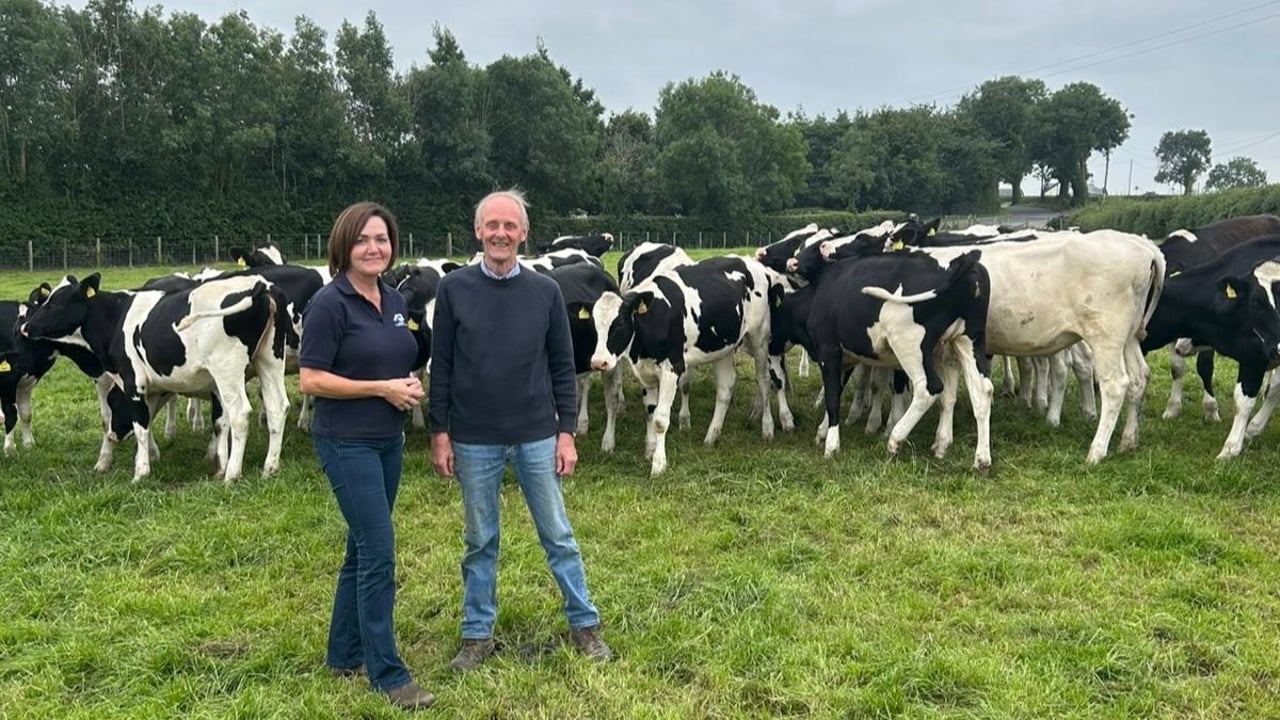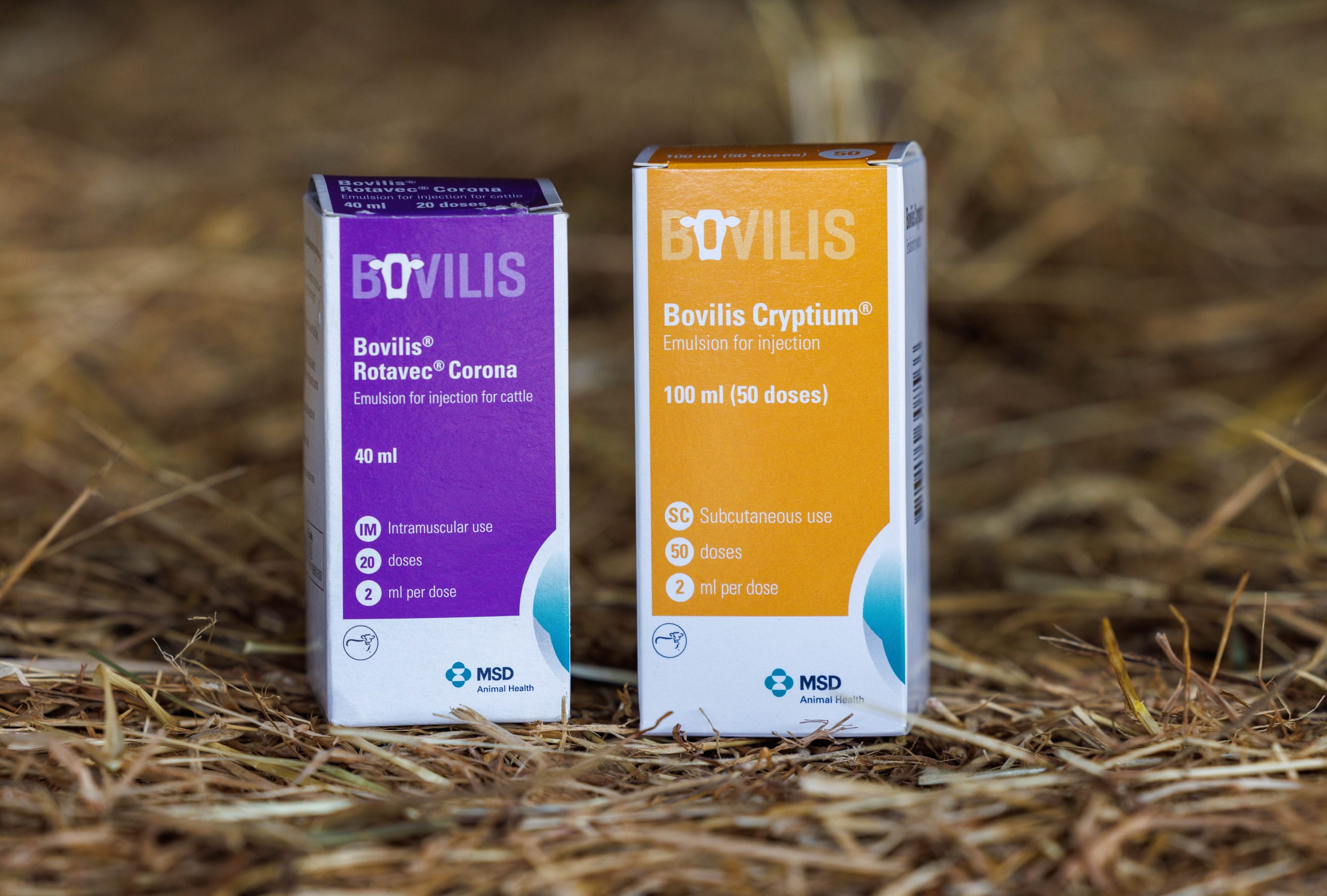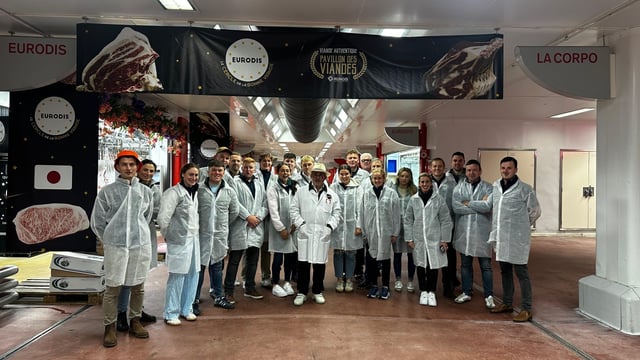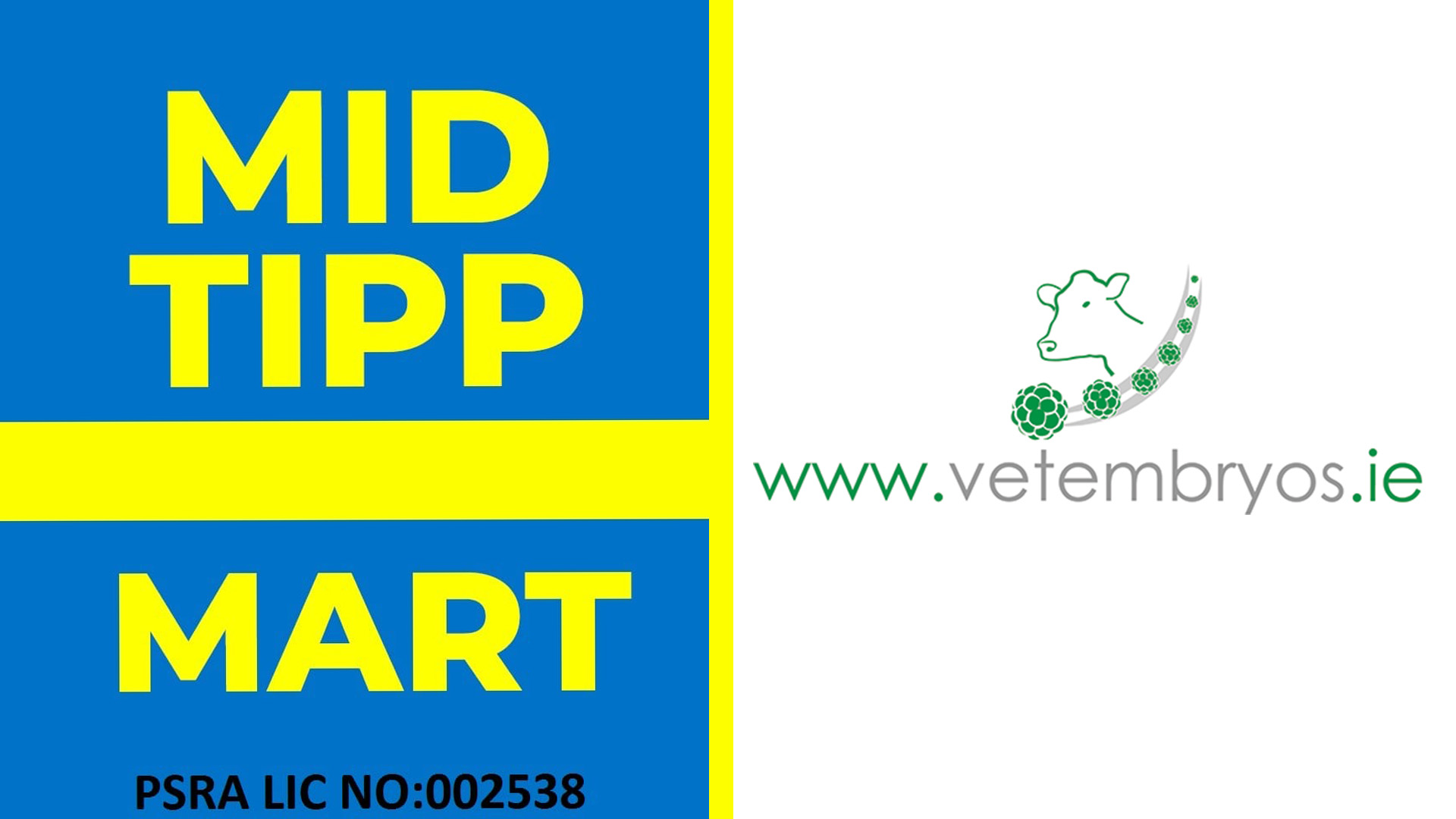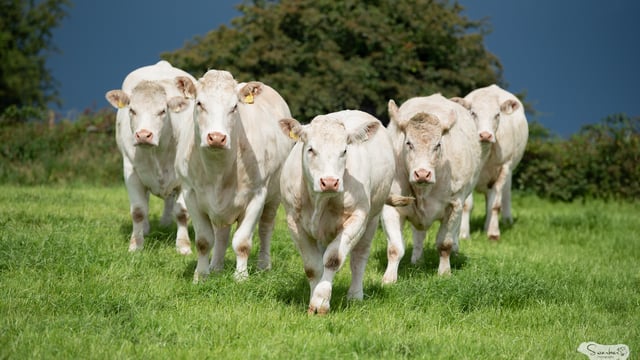Sponsored by MSD

Sponsored Article
Cryptosporidiosis vaccine tackles calving season challenge for Co. Down farmer
Sponsored Article

Bovilis Cryptium vaccine from MSD Animal Health protects calves from crypto scour.
When Beattie Lilburn experienced his first case of cryptosporidiosis scour during calving last November, he knew prompt action was required to protect his calves.
Acting quickly on veterinary advice, Beattie turned to Bovilis Cryptium, the cryptosporidiosis vaccine from MSD Animal Health, to help bring the outbreak under control.
Beattie, along with his wife Margaret and sons David and Reggie, run a 280-cow Holstein herd at Hillcrest Farm near Lisburn, Co. Down.
The family farms approximately 300ac of grassland, 200ac of combinable crops, and 35ac of beans, with calving taking place between September 1 and the end of March.
Beattie recalls how quickly things changed on the farm.
He said: “We had about 50 cows left to calve when the crypto outbreak hit last November. We’d never had a problem with it previously, but we knew we had to deal with it as quickly as possible.”
Beattie said he immediately contacted his vet, Joy Crawford from Lisburn Vets, who gave him advice and recommended Bovilis Cryptium.
“We wasted no time getting started – we vaccinated the 50 cows that were still due to calve."
"For the calves already affected, we gave an oral drench once a day for seven consecutive days to manage the scour, as well as using a strict hygiene and disinfection protocol for the calving pens and calf shed.
"After that, the rest of the calves arrived safely and we had no further problems," Beattie said.
Bovilis Cryptium is the first and only vaccine to protect calves against cryptosporidiosis.
It works by raising specific antibodies in the cow before calving, which are passed to the calf through colostrum and transition milk when fed for a minimum of five days.
This provides the calf with passive immunity against Cryptosporidium parvum during the first two weeks of life, when they are most vulnerable to the disease.
The primary course of Bovilis Cryptium consists of two doses of 2ml, given under the skin, four to five weeks apart.
These vaccinations must be completed between 12 and three weeks before calving. After that, a single booster dose is given 12 to three weeks before each subsequent calving.
Beattie said: “We’ll be starting to dry off in July, and we’ll be vaccinating the rest of the herd so that everything is covered for the upcoming calving season.
"The 50 cows we vaccinated back in November with the primary course will just need their booster vaccine, while the remaining 230 cows and heifers will receive the full two dose primary course.”
Beattie also vaccinates his herd with Bovilis Rotavec Corona, a single dose vaccination given to the cow 12 to three weeks before calving to passively provide protection to calves from diarrhoea caused by rotavirus, coronavirus and E. coli via adequate colostrum and transition milk feeding.
Bovilis Rotavec Corona can conveniently be given on the same day as Bovilis Cryptium.
The vaccines should be given at different sites. Both vaccines are available in 5, 20 and 50 dose packs and both have a 28-day shelf life once opened.
“While farmers always want to avoid outbreaks, having now faced that situation and dealt with it, we’ve got great confidence in Bovilis Cryptium after seeing the job it did for us," Beattie said.
"I would recommend Bovilis Cryptium to farmers without any hesitation.
“Once we got into calving those cows that we’d vaccinated in November, the problem disappeared – we had no more calves with crypto for the rest of the season."
The Co. Down farmer said that using Bovilis Cryptium on the advice of his vet "really helped bring everything back into line for us".
He added: “The old saying still applies, prevention is better than cure. The hassle created by calves scouring during the middle of the calving season remains the nightmare scenario because it’s so difficult to clear up.
"Given that most of our calving happens between September and the end of December, we’re naturally keen to avoid any outbreak of disease during such a tight timeframe.
"After what we had to deal with in November, Bovilis Cryptium whole herd vaccination was an easy decision to make."
The management of calf scour on farm requires a multifactorial approach with adequate colostrum management, hygiene, nutrition and husbandry being essential in reducing the risk of disease.
Speak to your veterinary practitioner for advice on what vaccination and therapeutic options will help to provide the best results on your farm.
Sponsored Article


